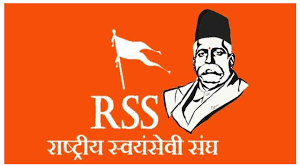The Narendra Modi government’s Unified Pension Scheme (UPS) is a landmark initiative aimed at ensuring financial security for government employees while protecting the fiscal stability of both state and central governments. This scheme provides a reliable pension framework for retirees and promotes cooperative federalism, a core value upheld by the Modi administration.
Under the provisions of the UPS, retirees will receive a pension equal to 50% of their average basic pay over the last 12 months of service. This ensures a stable post-retirement income for employees with at least 25 years of service, while those with shorter tenures will see their pensions adjusted accordingly.
Drawing from the pension reforms introduced by former Prime Minister Atal Bihari Vajpayee, the scheme focuses on a contributory and funded model. With joint contributions from employees and the government, it fosters a sustainable structure that carefully balances the need for adequate benefits with fiscal responsibility, creating a solid foundation for the future.
The UPS represents a significant upgrade from the Old Pension Scheme (OPS), which has strained the finances of several state governments. States like Rajasthan, Chhattisgarh, and Punjab have reverted to the OPS, a decision criticized for its potential fiscal recklessness. The Reserve Bank of India has raised concerns that reverting to the OPS could dramatically increase pension liabilities compared to the National Pension System (NPS), leading to greater financial instability.
In comparison, the UPS offers a more balanced and forward-thinking solution that addresses employee needs while enabling governments to fund key projects. The government’s contribution will increase to 18.5% of basic pay, while employees will continue contributing 10%. This adjustment helps close the gap between the expected pension and the returns generated by the pension fund, ensuring long-term financial security for retirees.
Furthermore, the UPS fosters cooperative federalism by motivating states to adopt a fiscally sustainable pension system. States that embrace the UPS will be able to continue investing in essential infrastructure and social welfare initiatives without compromising their financial health. The Modi government remains committed to transparency and fiscal discipline, with measures designed to limit off-budget borrowing and ensure responsible fiscal management.
In essence, the UPS demonstrates the government’s dedication to achieving a balance between economic progress and social security. It goes beyond mere pension reform, serving as a strategic approach to ensure that both states and citizens have the financial resources for a stable and prosperous future. As India advances, the UPS will play a pivotal role in safeguarding the financial well-being of millions of government employees while maintaining the nation’s fiscal strength.
 Newspatrolling.com News cum Content Syndication Portal Online
Newspatrolling.com News cum Content Syndication Portal Online







